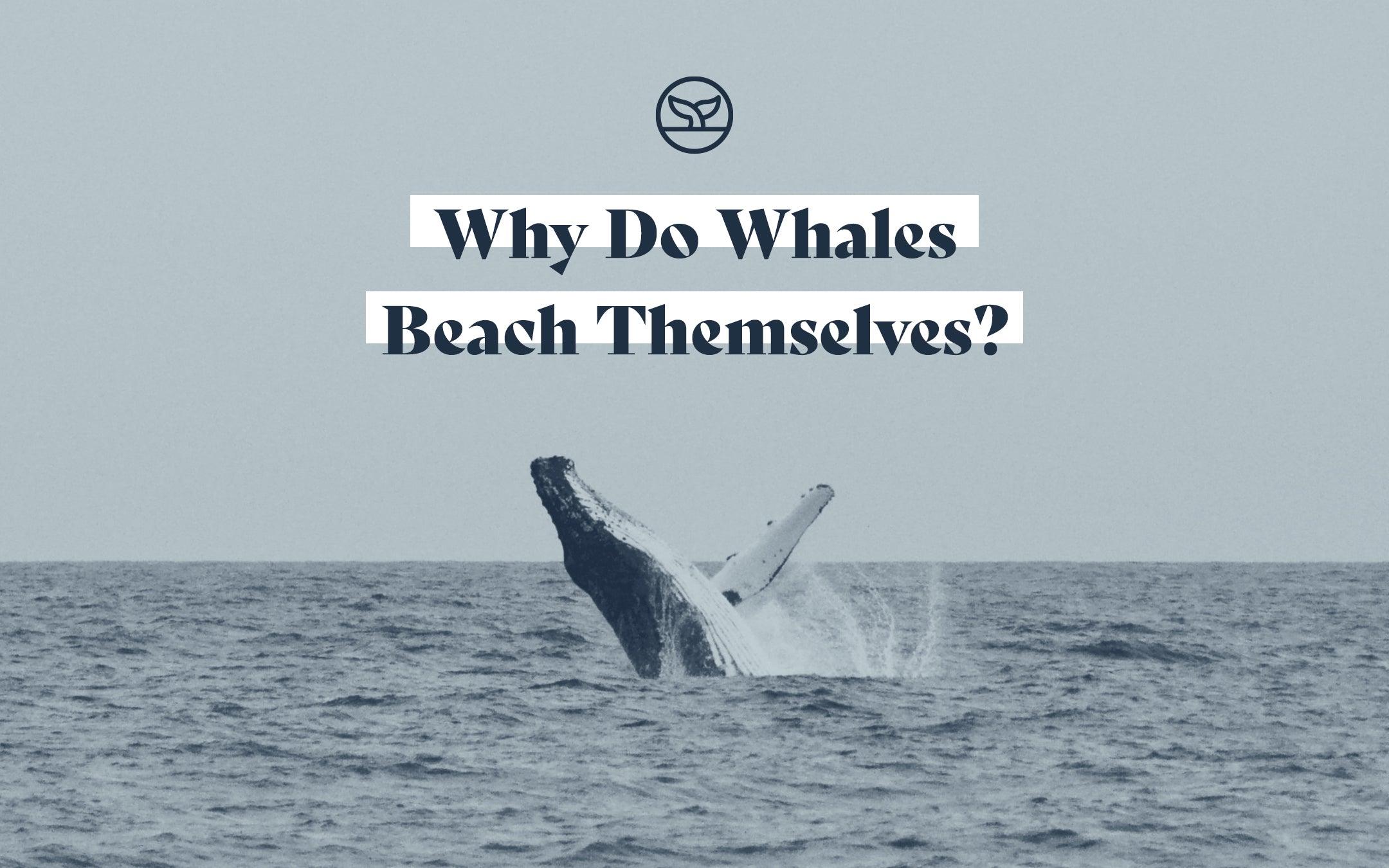
Why Do Whales Beach Themselves?
Every year thousands of whales, dolphins, and other marine animals wash up on beaches around the world.
Beaching is not limited to sick or dead animals; sometimes perfectly healthy whales end up finding themselves stuck on the beach.
While not common enough to cause a threat to the species, it is a fascinating phenomenon.
There are many reasons why whales suddenly found themselves stranded on land.
From noise pollution to human causes and natural reasons, scientists have been researching whale beaching for years.
So what do we know about the cause of whale beachings?
Whale Beaching by Natural Causes
When a whale is sick, injured or even lost and without food, it can conserve energy by simply drifting along with the current instead of swimming.
As a result, they can find themselves too close to the shore without even realizing it.
When they get to this point they either can’t physically manage to swim out because they are too weak or disoriented or the waters are too shallow for swimming away.
Another occurrence is when whales are either forced towards the shore by predators or when they themselves are hunting and get stranded.
Whale Beaching Caused by Noise Pollution
In water, sound travels both more quickly and at a higher intensity than air. Many factors contribute to how noisy the ocean is.
Whale ears are very sophisticated in picking up sound. As a result, too much noise can cause ear injury which can affect its ability to dive.

If a whale cannot dive, it cannot hunt for food. This leaves them both malnourished and dehydrated and can cause them to become sick.
Sound pulses from sonar and seismic surveys can interfere with a whale's ability to communicate and navigate its way around.
For example, naval sonar activity is thought to be associated with some Beaked whale strandings in Guam.
The noises can be so loud that they can drive the whales ashore by deafening, disorienting, and frightening them. It is thought that the whales look for safety in shallow waters when they are scared.
Whale Beachings Caused by Environmental Factors
Things like rough weather and environmental toxins can contribute to the beaching of whales.
Something called “red tides” can occur when microscopic algae rapidly bloom and release toxins into the water. This affects all levels of the marine food chain meaning food stocks for whales are lessened.
Whale Beachings Caused by Human Impact
Humans can be a contributing factor in the beaching of whales.
The interference of humans in the ocean such as fishing, waste pollution, and whales striking ships are a major problem when it comes to causing injury.
As mentioned above, injury leads to beachings.
Entanglement in fishing lines is the number one human-made cause of death for whales and can be attributed to species extinction.
Additionally, overfishing can lead to a shortage in the food supply which causes the whales to go on the search for food into shallower waters.
Pollution in the ocean has caused lasting problems for many years. Plastic waste that is dumped into the sea doesn’t ever leave and can cause illness and injury to marine life through entanglement or ingestion.
Whales in the North Atlantic ocean are at an especially high risk of being hit by a passing ship. These collisions can cause injury and even death which results in beachings.
Mass Strandings of Beached Whales
Mass strandings have both confused and interested scientists for many years.
A mass stranding happens where two or more whales (up to a full pod) find themselves stranded on the shore. This can mean numbers in the hundreds.
Pilot and melon-headed whales are most likely to find themselves at risk of mass stranding because they are herding animals. This means that the whole group will stay together even where one of them is sick or injured.
This herd mentality can result in accidental beachings due to trying to support the sick member of the group.
The bond between whales is so strong that whales will risk re-beaching themselves if they hear the call of a sick whale once they have been re-floated.
Can A Whale Survive A Beaching?
It all comes down to a matter of time.
Some of the risks to whales associated with beachings are:
- A whale can be crushed under its own weight when it is out of water
- Toxins build up from reduced circulation which poisons the animal
- The thick blubber on a whale can cause it to overheat if it is out of the water for too long.
- Whales rely on the air they breathe to help them survive. If their blowhole is filled with water at high tide, they can drown.
Unfortunately, survival rates are generally quite low.
This is in part due to the fact that the whale is already usually sick or dying by the time it becomes stranded.
They are also of course incredibly heavy and difficult to move. They cannot simply be dragged back into the ocean due to both their weight and the harm this can cause them.
Re-floating a whale will require the assistance of marine charities, the coast guard, and veterinarians to make sure the animal is handled properly to give it the best chance of success.
What Can We Learn From Beachings?
Whale strandings can help scientists to understand the animal better.
If unfortunately, the animal doesn’t survive, it can still help us to understand how whales live, how it died and how it was affected by such things as plastic pollution.
How Can You Help?
If you come across a beached whale, here are some of the things you can do to help:
- Don’t try to move the whale as this can cause damage to its tail and might mean it does not get the veterinary help it needs
- Call for help. Marine charities, veterinarians and emergency services are trained to know what to do in these situations and can act quickly
- Keep the animal wet and covered to prevent sunburn
You can also help support our nonprofit partner: Whale and Dolphin Conservation with the purchase of any whale clasp, necklace, ring, sticker pack or earring set. Whale and Dolphin Conservation is an organization dedicated to the worldwide protection and preservation of all whales, dolphins, and porpoises.











